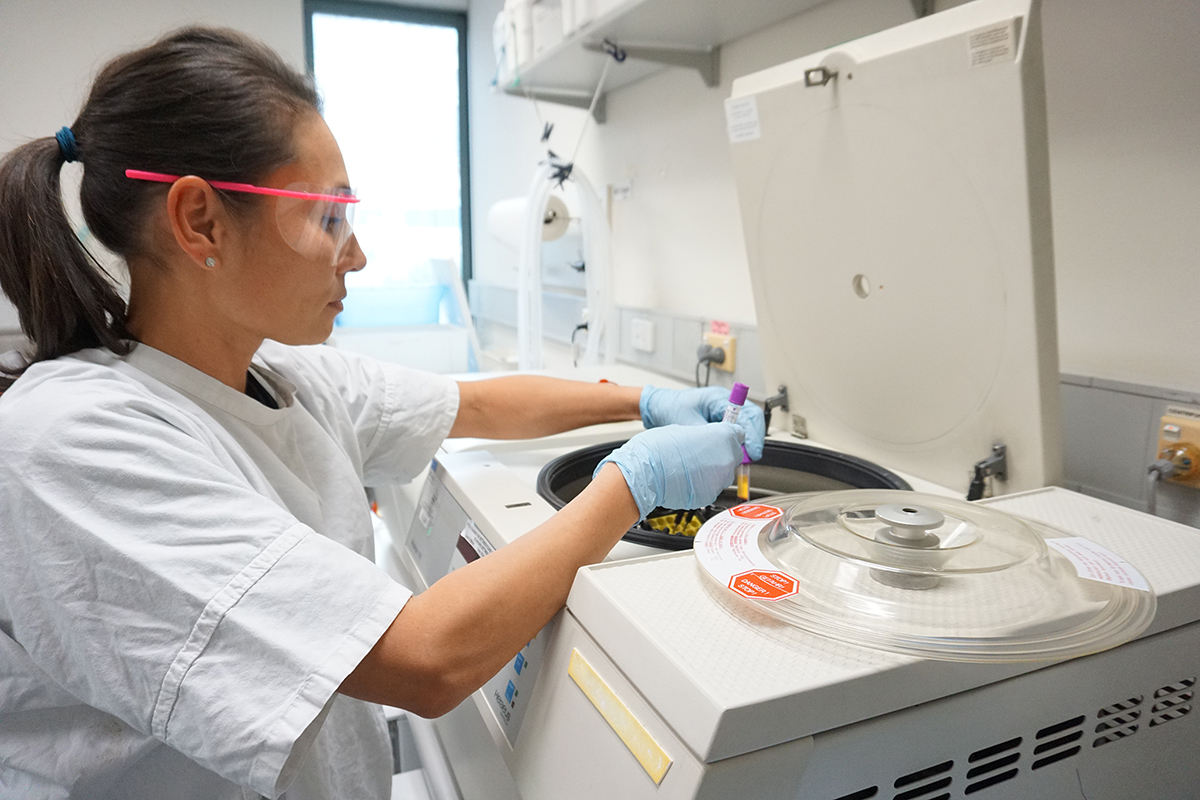Tackling the burden of heart disease and early death in Type 1 diabetes
 An innovative clinical study supported by St Vincent’s Clinic Foundation
An innovative clinical study supported by St Vincent’s Clinic Foundation
Type 1 diabetes is a disease many people hear about, but few actually appreciate the challenges associated with it.
Even at normal times, when their extra vulnerability to a novel virus is not a concern, people with diabetes face a host of issues. The most serious is their increased risk of premature death from heart disease. In fact, nearly 3 out of 4 people with type 1 diabetes die of a heart attack or other cardiovascular complication, compared to 1 in 4 people in the general population . Yet the underlying causes remain poorly understood.
New risk factor under the microscope: insulin resistance
With the support of St Vincent’s Clinic Foundation, Professor Jerry Greenfield, Endocrinologist at St Vincent’s and Clinical Researcher at the Garvan Institute of Medical Research, is conducting an innovative clinical study that aims to reduce the burden of heart disease risk in type 1 diabetes. Together with PhD candidate and Endocrinologist, Dr Jennifer Snaith, and research nurse, Jennifer Evans, he is investigating insulin resistance as a potential cardiovascular risk factor - and a possible treatment that could prevent premature death.
Insulin resistance is a known driver of increased cardiovascular disease risk, but is usually associated with type 2 diabetes. However, it is increasingly detected in people with type 1 diabetes, which is why Prof Greenfield believes insulin resistance could be a contributor for this group too.
Novel, personalised treatment strategy
This is where Prof Greenfield and his team are breaking new grounds. Their study is one of the first to examine the effects of medication ‘metformin’ in type 1 diabetes - the drug is traditionally used to improve insulin resistance and lower cardiovascular risk in type 2 diabetes. The rationale is that, if metformin can improve insulin resistance for people with type 1 diabetes (as it does with type 2), it could also reduce cardiovascular risks and prevent early death for these patients.
Yet the real novelty lies in the project’s focus on personalised treatments, as the research team will not only determine whether metformin improves insulin resistance in type 1 diabetes, but will also identify factors that can predict an individual’s response to the drug. With the identification of such patterns, they should be able to anticipate how a patient’s body could react, and which individual patients are more likely to see their insulin resistance improve with treatment.

In the lab
Prof Greenfield’s randomized clinical trial involves 60 volunteers: 40 with type 1 diabetes and 20 control volunteers without diabetes. It starts with a baseline testing day, followed by two intense study days called an ‘insulin clamp study’. The insulin clamp studies are performed six months apart (before and after treatment with metformin) and require the infusion of insulin and glucose into the patient’s vein - it is the golden standard measurement of insulin resistance. In addition, the team undertakes measurement of abdominal fat using MRI, as well as measurement of body composition (lean muscle, fat and bone mass) using DXA scans, which are commonly used to measure bone density. Subjects also donate a stool sample for analysis, to establish whether the microbiome is a determinant of metformin’s effects on insulin sensitivity.
Prof Greenfield and Dr Snaith had to put their study on hold for a few months due the pandemic crisis, and have been able to pick up the research work and the trial several weeks ago.
Opening up new paths to medical advancements
This research has the potential to tackle the burden of cardiovascular disease and prevent early death in type 1 diabetes. However, its impact could go well beyond that.
Should results be conclusive, this could lead to the testing of other cardioprotective drugs in type 1 diabetes that are traditionally used in type 2 diabetes. It could also spearhead longer-term studies of metformin to examine its effects on cardiovascular disease risks overall. Prof Greenfield’s and Dr Snaith’s work has the potential to widen the medical sphere of possibilities for type 1 diabetes and cardiovascular diseases.
Recruitment is active and the INTIMET team welcomes interest from individuals with and without type 1 diabetes between the ages of 20-50 years. Contact: INTIMET@garvan.org.au
*Source: http://www.diabetesforecast.org/2013/aug/what-rsquo-s-behind-heart-attacks-in-type-1-diabetes.html